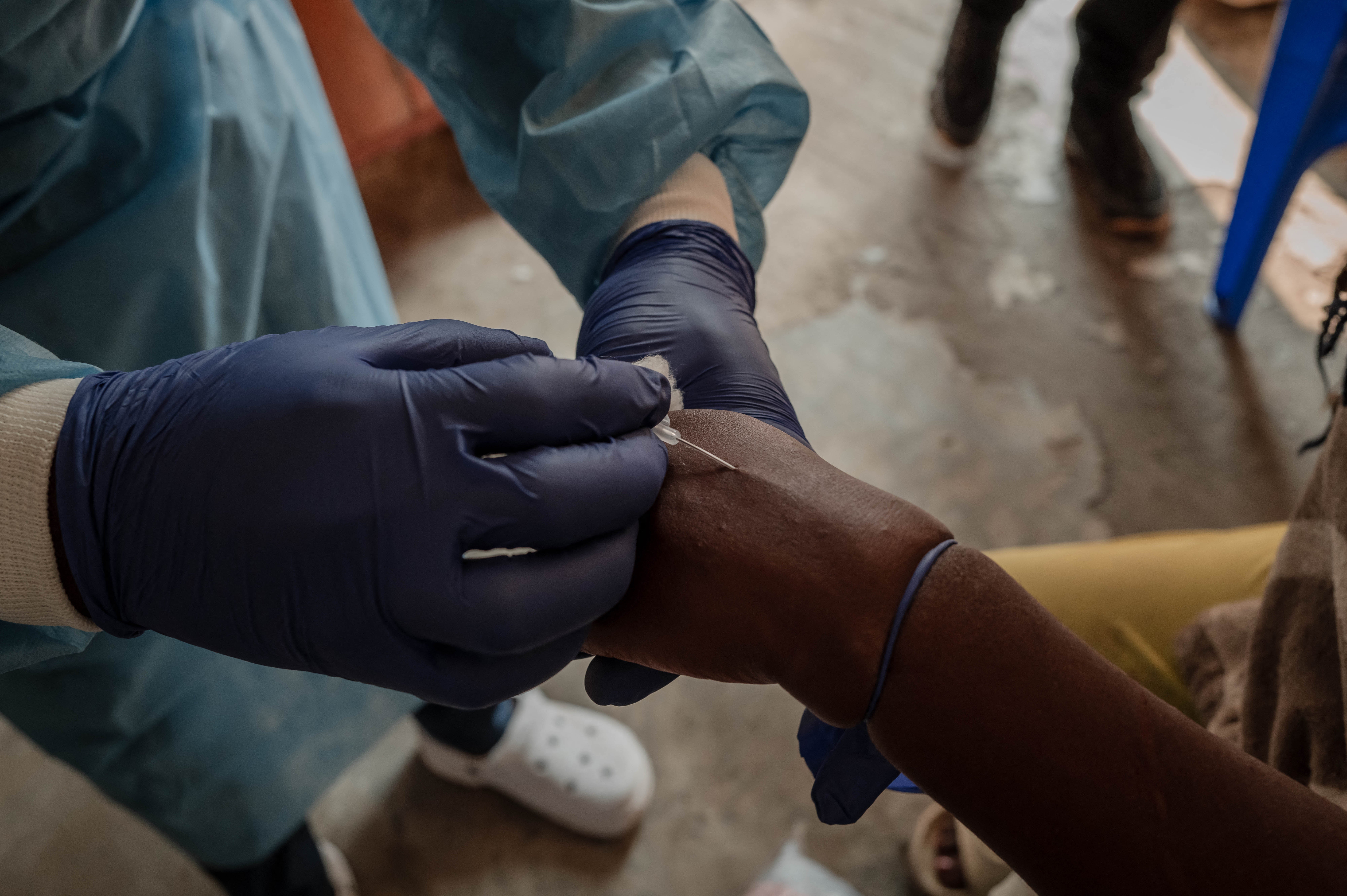Pakistan admits it cannot find mpox patient as tighter screening to be introduced at airports
Officials yet to confirm whether patient is infected with new deadlier variant known as clade 1b
Your support helps us to tell the story
From reproductive rights to climate change to Big Tech, The Independent is on the ground when the story is developing. Whether it's investigating the financials of Elon Musk's pro-Trump PAC or producing our latest documentary, 'The A Word', which shines a light on the American women fighting for reproductive rights, we know how important it is to parse out the facts from the messaging.
At such a critical moment in US history, we need reporters on the ground. Your donation allows us to keep sending journalists to speak to both sides of the story.
The Independent is trusted by Americans across the entire political spectrum. And unlike many other quality news outlets, we choose not to lock Americans out of our reporting and analysis with paywalls. We believe quality journalism should be available to everyone, paid for by those who can afford it.
Your support makes all the difference.Pakistan says it is introducing new screening at airports after confirming at least one case of mpox infection, days after the World Health Organisation declared a global emergency over the virus.
Health officials are concerned about a new deadlier strain of the virus, formerly known as monkeypox, that has spread through several African countries.
The case reported in Pakistan involves a patient who had recently returned from a Gulf country. Pakistan’s health ministry said it had yet to determine the strain of the virus.
Mpox belongs to the smallpox family of viruses but causes milder symptoms including fever, chills and body aches, with more serious cases likely to develop characteristic lesions on the face, hands, chest and genitals.
Earlier this week, the WHO warned of the “very worrying” emergence and spread of a new variant of mpox associated with a “more severe disease and higher mortality rates” than the strain behind the global mpox outbreak in 2022.
Over 17,000 mpox cases have been confirmed in Africa with more than 500 deaths this year alone, mainly among children in the Democratic Republic of the Congo since the outbreak began at the start of 2023.

Pakistan’s health department confirmed that one case of mpox was detected in the country’s northern Khyber Pakhtunkhwa province, withdrawing a previous statement that three cases of the viral infection were detected in the region this week on arrival from the UAE.
The health ministry said it had yet to confirm if the patient is infected with the new variant known as clade 1b, with the sequencing of a sample from the Khyber Pakhtunkhwa patient underway.
“Once that’s done, we will be able to say what strain this is,” the health ministry said, adding that the “screening system at airports and entry points is being further strengthened”.
The ministry flagged concerns that the location of the confirmed mpox patient in Pakistan is currently unknown, as he is suspected to have gone to another district after providing his samples for tests.
“When we visited his home in Mardan, it was locked from [the] outside and his neighbours told us that the family has left for Dir,” the district health office (DHO) said.
“We approached our fellow colleagues of the health department in Dir district but they couldn’t trace him, even in Dir,” the DHO said.
The health ministry said it was carrying out contact tracing of the patient.
The new strain emerged in a Congolese mining town last year and is spreading to other countries in Africa as well as one case confirmed in Sweden on Thursday.
Clade 1b is said to cause milder symptoms with lesions on the genitals, making it harder to spot and more likely for people to sicken others without knowing they’re infected.

“It is concerning for two main reasons,” according to pox researcher Jonas Albarnaz from the Pirbright Institute.
“First, this is the first clade 1 mpox virus case outside Africa. This indicates that the extent of the international spread of clade 1 outbreak in DRC might be larger than we knew yesterday,” Dr Albarnaz said.
“And second, clade 1 mpox virus is associated with a more severe disease and higher mortality rates than the clade 2 virus responsible for the international mpox outbreak in 2022.”
Join our commenting forum
Join thought-provoking conversations, follow other Independent readers and see their replies
Comments